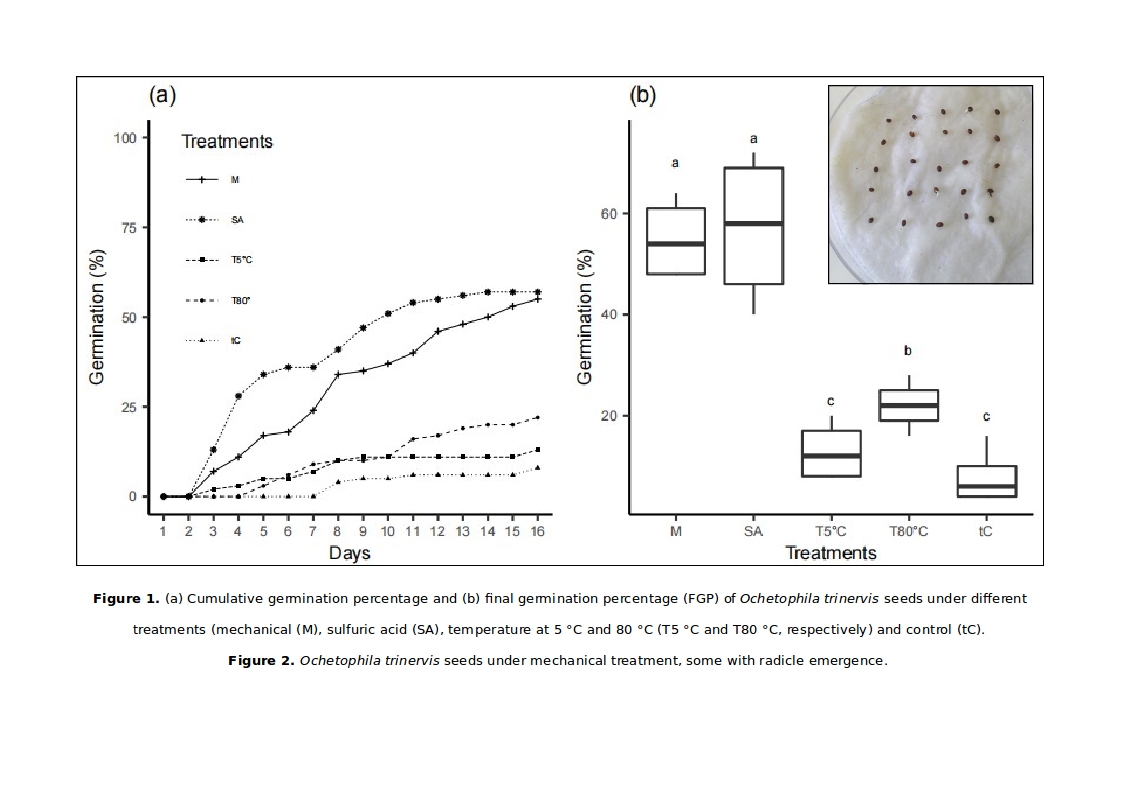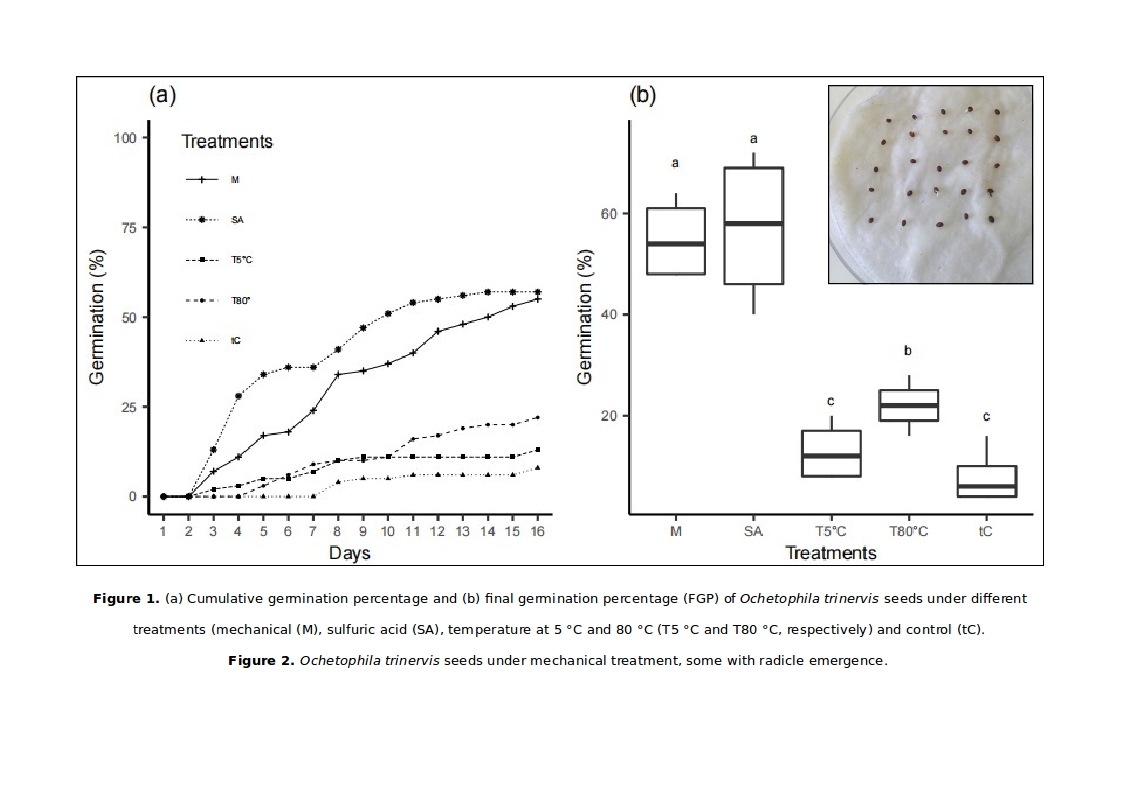Pre-germination treatments on Ochetophila trinervis, a native Andean tree with potential use for restoration
DOI:
https://doi.org/10.48162/rev.39.067Palabras clave:
Rhamnaceae, sostenibilidad sociocultural, tratamientos pre-germinativos, dormición de semillasResumen

In a climate change scenario, global forest loss had a direct impact on the hydrological cycle, making the protection of soil and water resources a central issue. In the Central Andes of western Argentina, information on Chacay (Ochetophila trinervis) mountain forests is scarce. This tree thrives along river and stream banks, fixes atmospheric nitrogen, and grows in impoverished soils. The seeds of O. trinervis are characterized by physical or physiological dormancy, and germination requires technique application. The main goal was to evaluate the effect of mechanical and chemical scarification, cold stratification, and hot water immersion on the final germination percentage, germination speed index, and the mean germination time of O. trinervis seeds. Our results show that mechanical and chemical scarification are the treatments that best inhibit seed dormancy in this species. Mechanical scarification with sandpaper is the treatment that offers a balance between effective results and an easy-to-apply technique. Sulfuric acid (SA) treatment is also efficient in breaking dormancy, but we recommend applying it under extreme careful laboratory conditions.
Highlitghs:
- Our findings support the hypothesis that the seeds of O. trinervis show physical dormancy because either mechanical (M) or chemical scarification (SA) techniques achieved the highest germination values.
- Our results indicate that mechanical scarification (M) might be a practical option for O. trinervis seedling germination in the Central Andes of Western Argentina.
- Sulfuric acid (SA) treatment is also efficient in breaking dormancy, but we recommend applying it under extreme careful laboratory conditions.

Descargas
Publicado
Número
Sección
Licencia
Derechos de autor 2018 Revista de la Facultad de Ciencias Agrarias UNCuyo

Esta obra está bajo una licencia internacional Creative Commons Reconocimiento-NoComercial-CompartirIgual 3.0.
Aquellos autores/as que tengan publicaciones con esta revista, aceptan las Políticas Editoriales.


